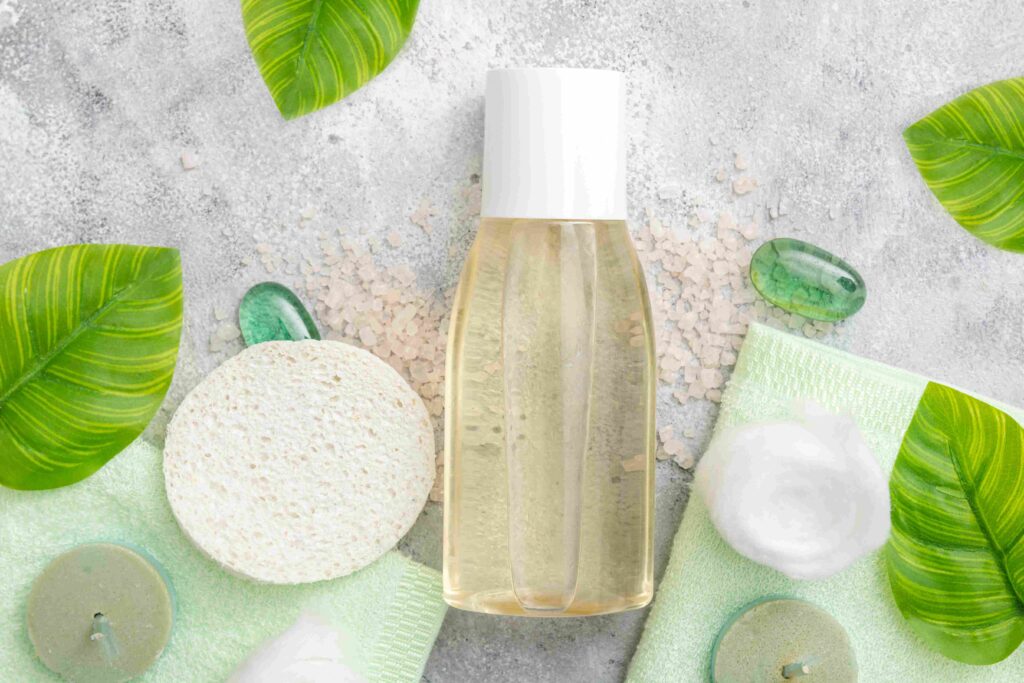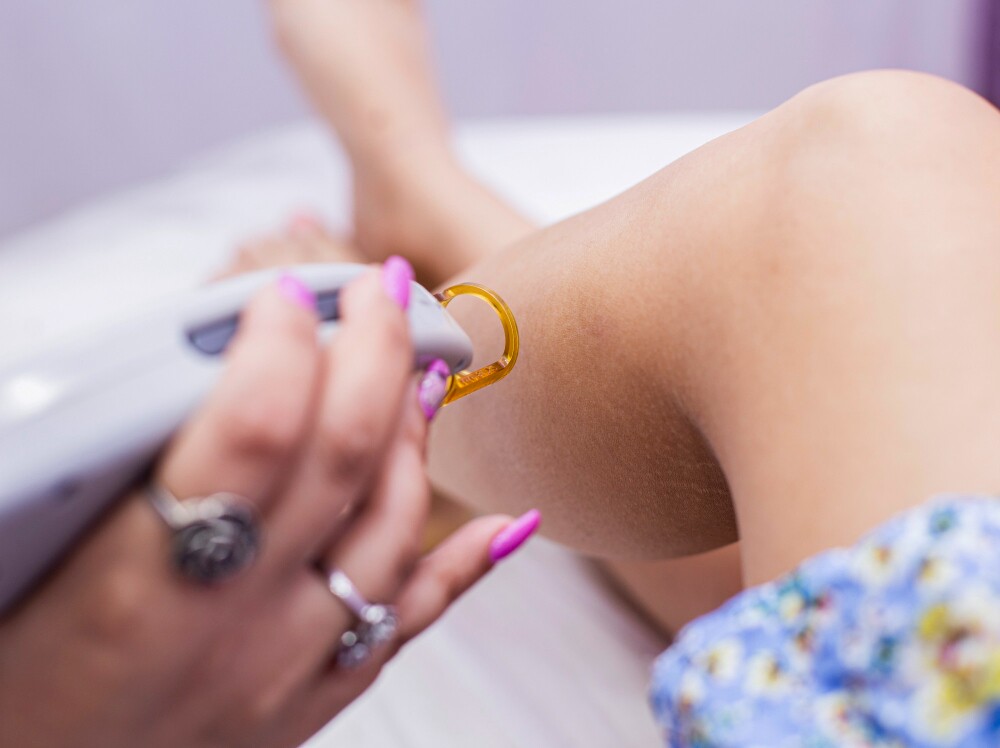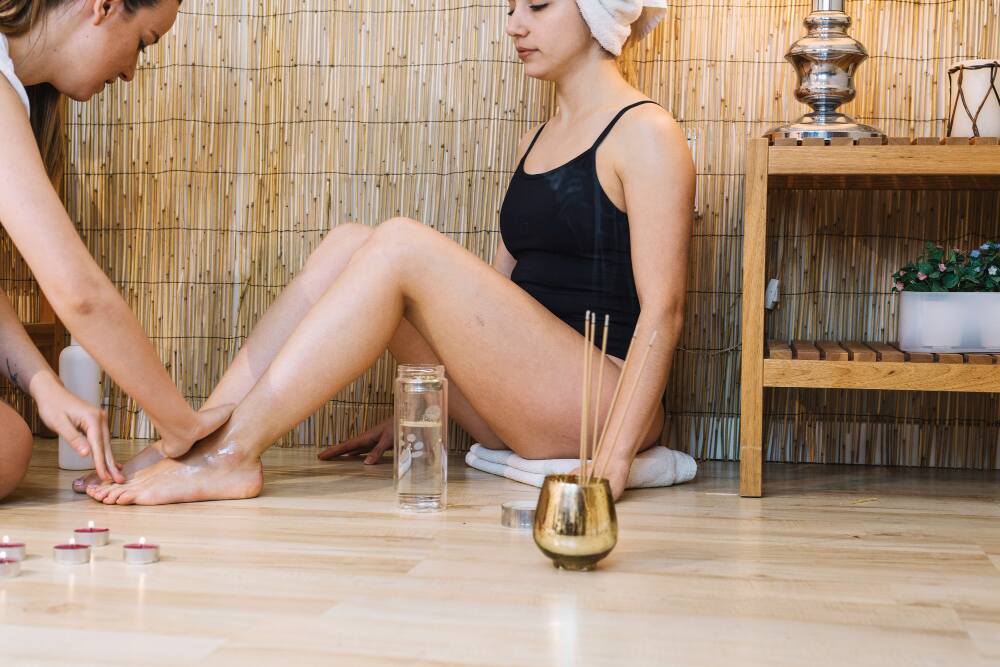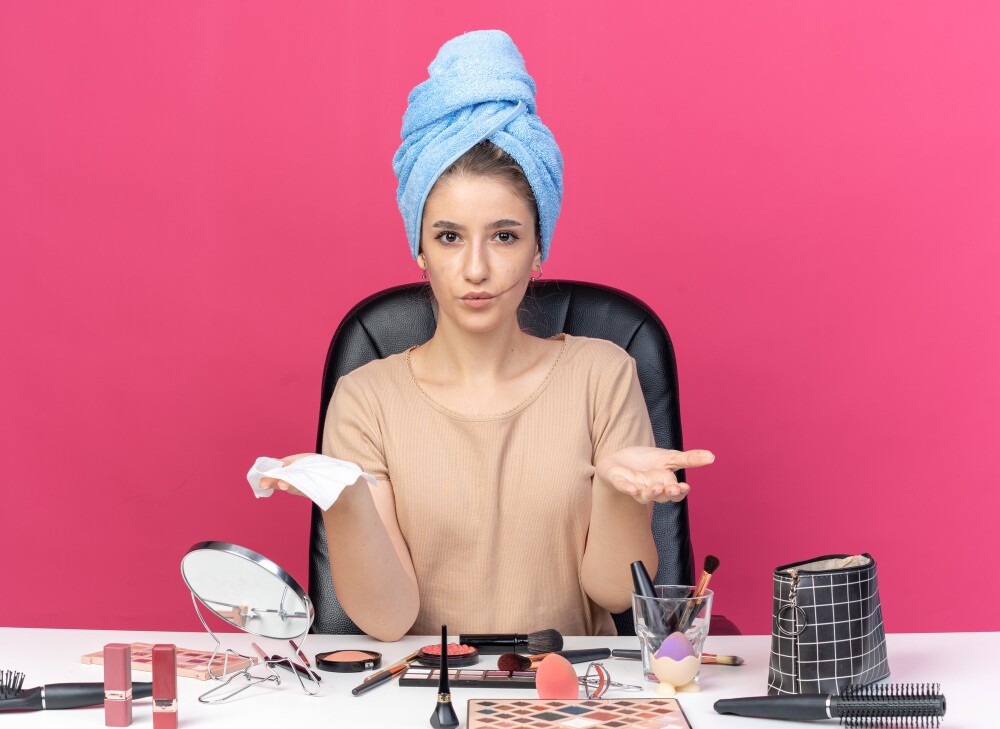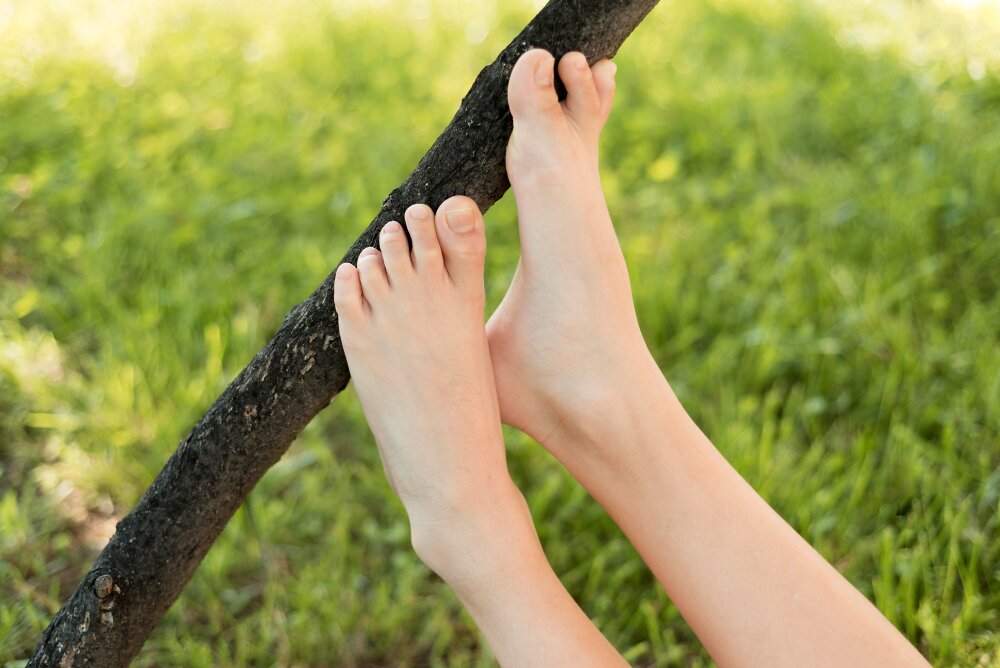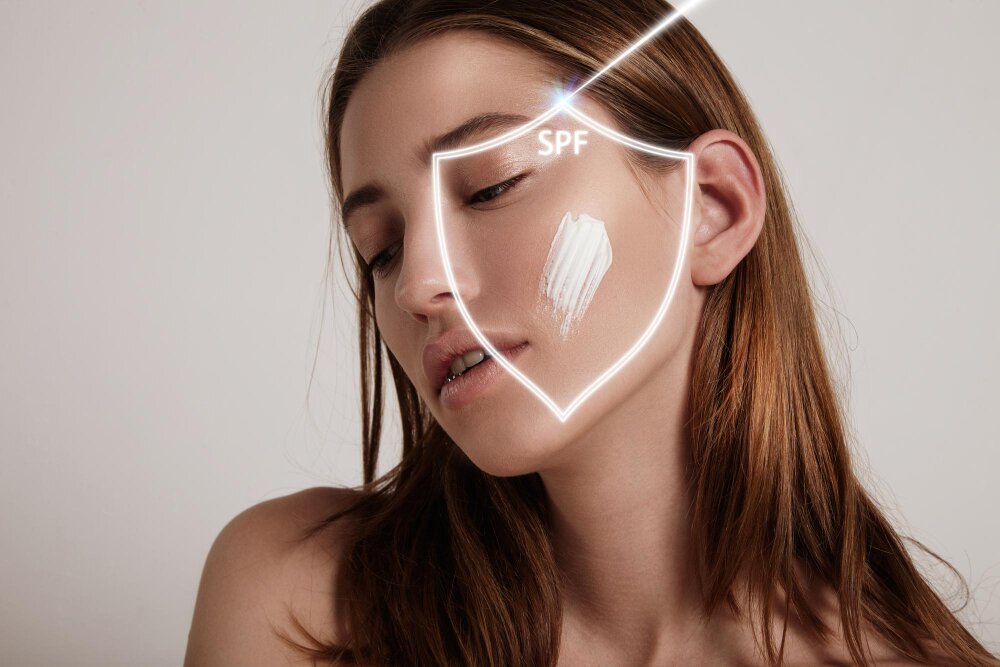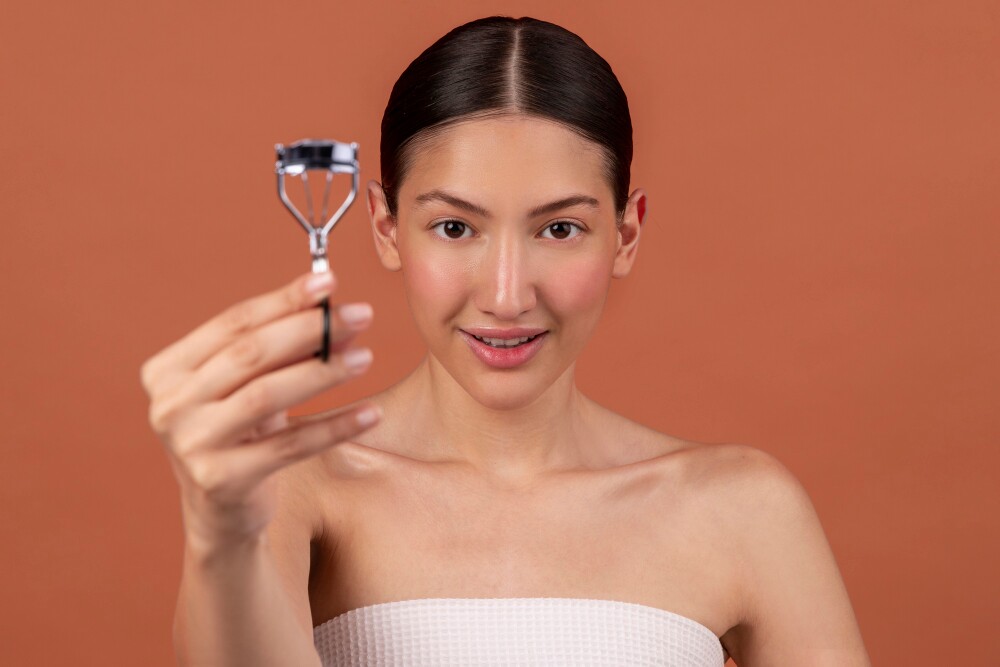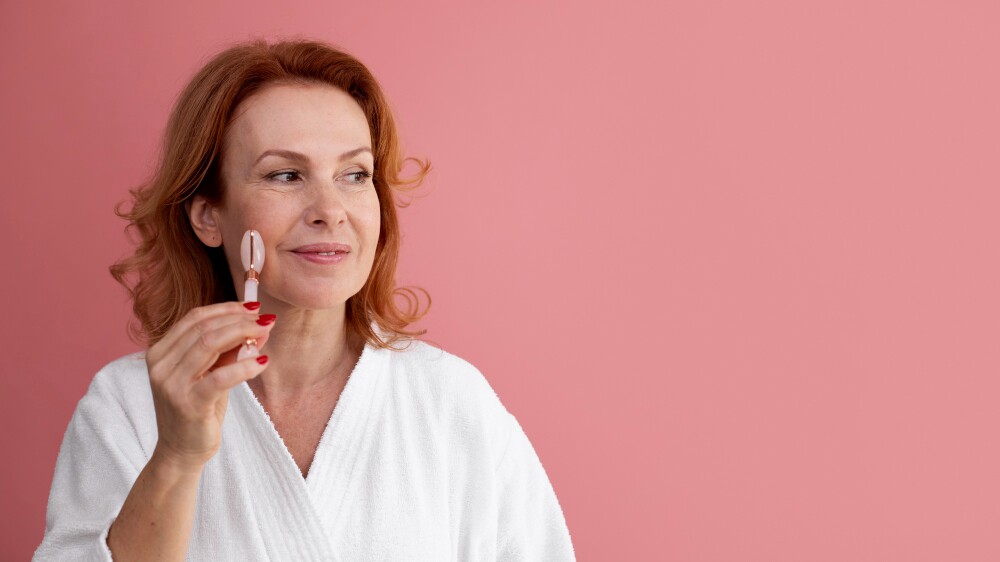Itchy Skin After Swimming in Chlorinated Pools?

Ah, the refreshing feeling of a cool dip on a hot day. But sometimes, that post-pool bliss is marred by an unwelcome guest – itchy skin. If you’ve ever experienced this after swimming in a chlorinated pool, you’re not alone. This irritation is a common reaction, and understanding the cause can help you find relief.
This blog dives deep into the world of itchy skin after swimming, exploring:
- The Culprit: Chlorine and Its Effects on Skin
- Beyond Chlorine: Other Potential Causes of Pool-Related Itch
- Soothing Solutions: Strategies to Calm Skin Irritation
- Preventing the Itch: Pre- and Post-Swim Tips for Healthy Skin
The Culprit: Chlorine and Its Effects on Skin
Chlorine, the workhorse disinfectant keeping pool water clean and safe, can also be the source of your itchy woes. Here’s how:
-
Irritant Dermatitis: Chlorine, by its very nature, is a mild irritant. When it comes into contact with your skin, it can disrupt the natural oils and disrupt the skin’s barrier function. This disruption leads to dryness, redness, and yes, itchiness.
-
Sensitivity vs. Allergy: It’s important to distinguish between chlorine sensitivity and a true chlorine allergy. Sensitivity is more common and causes the aforementioned irritation. A chlorine allergy is less frequent and involves a more severe reaction, potentially including hives, wheezing, or anaphylaxis.
-
Factors Affecting Sensitivity: Several factors can influence your susceptibility to chlorine irritation. These include:
- Frequency of Swimming: The more you swim in chlorinated water, the higher the chance of developing irritation.
- Skin Type: People with dry or sensitive skin are generally more prone to experiencing irritation from chlorine.
- Pool Conditions: Higher chlorine levels or improperly maintained pools can increase the risk of irritation.
Beyond Chlorine: Other Potential Causes of Pool-Related Itch
While chlorine is the most likely culprit, other factors can contribute to itchy skin after swimming:
-
Pool Chemicals: Other disinfectants besides chlorine, like bromine, can also irritate the skin. Additionally, algaecides used to control pool algae may cause skin reactions for some individuals.
-
pH Levels: Imbalanced pool water pH (too acidic or basic) can disrupt the skin’s natural balance and lead to irritation.
-
Swimsuit Material: Certain synthetic swimsuit materials can trap chlorine and other chemicals against your skin, prolonging irritation.
-
Swimmer’s Itch: This condition, caused by microscopic parasites found in freshwater lakes and some pools, can cause an itchy, bumpy rash.
Soothing Solutions: Strategies to Calm Skin Irritation
The itch is real, but the good news is there are ways to find relief:
-
Immediate Rinse: After swimming, take a cool shower as soon as possible to remove chlorine and other chemicals from your skin.
-
Gentle Cleansing: Use a fragrance-free, gentle cleanser to wash your entire body. Avoid harsh soaps that can further strip your skin’s natural oils.
-
Moisturize: Apply a fragrance-free, hypoallergenic moisturizer to replenish lost moisture and soothe irritation. Lotions containing soothing ingredients like aloe vera or oatmeal can be particularly helpful.
-
Hydrocortisone Cream: For more intense itching, a mild hydrocortisone cream applied sparingly to the affected area can provide temporary relief.
-
Calming Soak: A cool oatmeal bath can help soothe itchy and irritated skin. Grind oatmeal into a fine powder and add it to a lukewarm bath for a gentle, calming soak.
Preventing the Itch: Pre- and Post-Swim Tips for Healthy Skin
Prevention is always better than cure. Here are some tips to minimize the risk of itchy skin after swimming:
-
Pre-Swim Moisturizer: Apply a thin layer of waterproof sunscreen or petroleum jelly before swimming to create a barrier between your skin and the chlorine.
-
Shower Cap: Consider wearing a shower cap to protect your hair and scalp from chlorine exposure.
-
Frequent Breaks: Take short breaks out of the pool to allow your skin to breathe and rinse off some of the chlorine.
-
Post-Swim Rinse: The most crucial step! Shower immediately after swimming, rinsing thoroughly with clean water.
-
Swimsuit Choice: Opt for loose-fitting swimsuits made from breathable materials like cotton or nylon blends.
-
Hydration: Staying hydrated from the inside out helps maintain healthy skin. Drink plenty of water before, during, and after swimming.
If the Itch Persists: When to See a Doctor
If the itching is severe, doesn’t improve within a few days, or is accompanied by other symptoms like redness, swelling, or burning, consult a dermatologist.
Important Considerations
-
Individual Variation: Everyone’s skin is different. Some people may experience no discomfort after swimming in chlorinated pools, while others are highly sensitive. Pay attention to your skin’s response and adjust your swimming habits or protective measures accordingly.
-
The Chlorine Paradox: While a necessary part of pool sanitation, chlorine is a double-edged sword. It keeps the water safe but also has the potential to irritate the skin. It’s essential to find a balance between pool safety and personal comfort.
-
Listen to Your Skin: If your skin reacts poorly to chlorine exposure, reducing your swimming frequency, shortening swim times, or finding alternative pools with lower chlorine levels or different sanitizing methods may be necessary.
Alternative Sanitizing Methods: Less Irritating Options
If chlorine sensitivity is a major issue, you might want to consider exploring pools that use alternative sanitizing methods. These options often reduce the potential for skin irritation:
-
Saltwater Pools: Saltwater pools use a salt chlorine generator to convert salt into a less irritating form of chlorine. Although not completely chlorine-free, they tend to be gentler on the skin.
-
Mineral Pools: Mineral pools use a combination of minerals like copper and silver to sanitize the water, decreasing the reliance on chlorine.
-
UV Disinfectant Systems: UV systems use ultraviolet light to neutralize bacteria and viruses without the need for harsh chemicals, making them a good option for those with highly sensitive skin.
-
Ozone Systems: Ozone systems use ozone gas as a powerful oxidizer to disinfect the water. They are often used in conjunction with a small amount of chlorine, reducing the overall chemical load.
Frequently Asked Questions
-
Can I swim if I have eczema or other skin conditions? Before swimming in chlorinated water, individuals with eczema, psoriasis, or other skin conditions should consult a dermatologist. Chlorine can further irritate these conditions and trigger flare-ups.
-
Can chlorine make your hair dry as well? Yes! Chlorine strips away natural oils that coat and protect your hair, making it prone to dryness and breakage. Consider using a clarifying shampoo after swimming, followed by a deep conditioner to help restore moisture to your hair.
-
Are there ways to test your pool chlorine levels at home? Absolutely! Home pool test kits or test strips are readily available to monitor chlorine levels. These can help you ensure that your pool water is correctly balanced, minimizing irritation potential.
Conclusion
Enjoying swimming and maintaining healthy skin should go hand in hand. While chlorine is essential for pool safety, it’s important to understand its potential effects and ways to protect your skin. By implementing the strategies discussed, you can minimize itchy skin and maximize the joys of swimming. If skin irritation becomes a major concern, exploring pools with alternative sanitizing methods might be your solution to comfortable and carefree swimming.
Remember, a little understanding and preventative care can go a long way in ensuring your swimming sessions are filled with fun, not discomfort!
Disclaimer
The information provided in this blog article is intended for informational purposes only. This information is not a substitute for personalized medical advice and should not be used to self-diagnose or treat health conditions. Always consult with a dermatologist or healthcare provider for any skin concerns or questions related to swimming in chlorinated pools.

